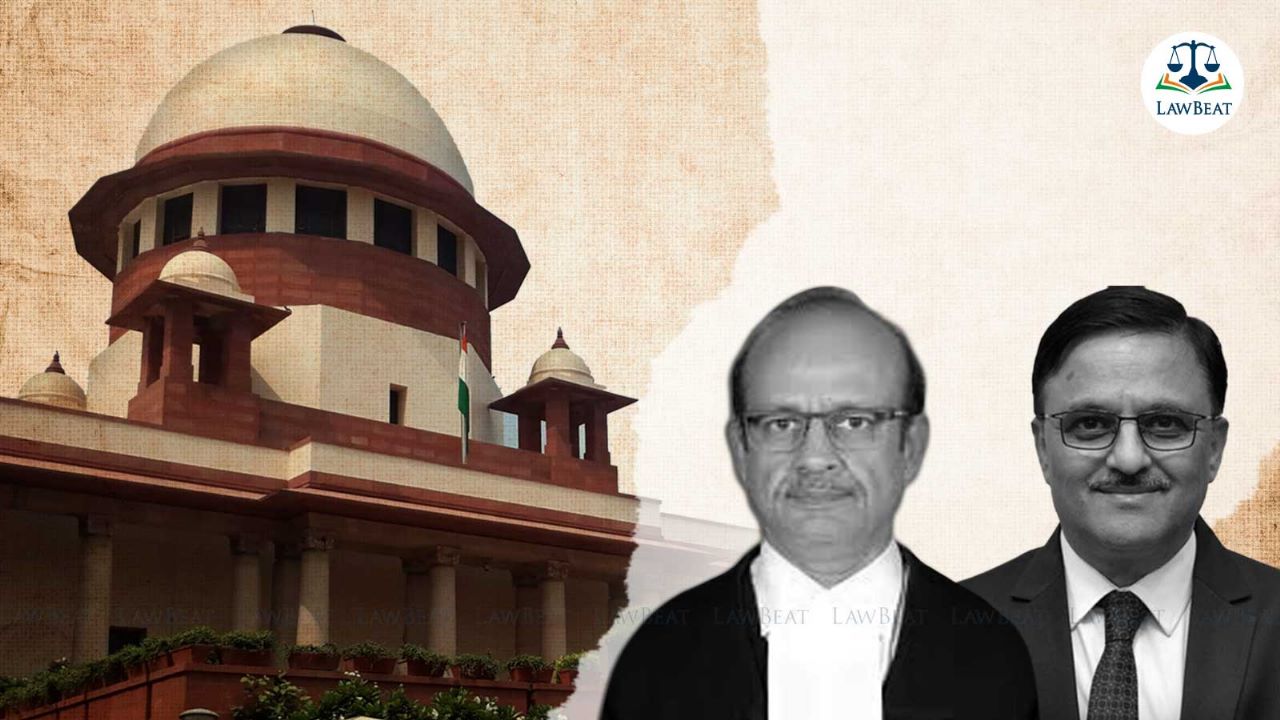All Central, State laws applicable in scheduled areas unless specified otherwise: SC

Court dismissed the appeal filed by 'Adivasis for Social and Human Rights Action' against the Orissa High Court's judgment rejecting its contentions, including the apprehension that every person, who does not belong to a scheduled tribe and resides in the scheduled area, is an unlawful occupant.
The Supreme Court has declared that all Central and State laws would remain applicable in a scheduled area of a State, unless a specific notification is issued by the Governor, restricting the use of a statute over there.
The court also held that the power of the Governor in such instances would not supersede the fundamental rights guaranteed under the Constitution.
A bench of Justices Abhay S Oka and Rajesh Bindal dismissed an appeal filed by 'Adivasis for Social and Human Rights Action' against the Orissa High Court's judgment rejecting its contentions, including the apprehension that every person, who does not belong to a scheduled tribe and resides in the scheduled area, is an unlawful occupant and, therefore, is disentitled to exercise his right to vote in any constituency in the scheduled area.
The appellant had also contended under the sub-clause (1) of clause 5 of the Fifth Schedule, unless there is a specific notification issued by the Governor of the State applying any particular Central or State law to a scheduled area, none of the provisions of the Central or State laws are applicable to that particular area.
"The contention raised by the appellant unless there is a specific notification issued by the Governor applying Central or State laws to a Scheduled Area, the said laws will not apply to the said Scheduled Area, to say the least, is preposterous," the bench said.
The bench said that in fact, the issue is no longer res integra.
It pointed out there is a binding decision of the Constitution Bench of the Top Court in the case of 'Chebrolu Leela Prasad Rao & Ors. v. State of Andhra Pradesh & Ors (2021).
"All the Central and the State laws which are applicable to the entire State of Orissa will continue to apply to the Scheduled Area unless, in exercise of powers under sub-clause (1) of Clause 5 of the Fifth Schedule, there is a specific notification issued by the Hon’ble Governor making a particular enactment inapplicable, either fully or partially," the bench said.
It also said that the power of the Governor under Clause 5 of the Fifth Schedule is restricted to directing that a particular law will not apply to the scheduled area or it will apply with such modifications as may be specified in the notification while making regulations in terms of sub-clause (2) of Clause 5 of the Fifth Schedule.
It also held that the power of the Governor under Clause 5 of the Fifth Schedule does not supersede the fundamental rights under Part III of the Constitution.
"Therefore, the Fundamental Rights conferred by sub-clause (e) of Article 19(1) of the Constitution of India on the citizens can also be exercised in relation to the Scheduled Area," the bench said.
The court further rejected the argument that non-tribals have no right to settle down in a scheduled area.
"Under sub-clause (e) of clause (1) of Article 19 of the Constitution of India, every citizen has a right to reside and settle in any part of the territory of India. However, by making a law, reasonable restrictions can be put on the said Fundamental Right as provided in Clause (5) of Article 19," the bench said.
Court also rejected the argument that the Fifth Schedule is a law made by the Parliament and termed it as misconceived.
"Even assuming that Fifth Schedule is a law, it does not put any constraints on the exercise of the Fundamental Rights under Article 19(1) of the Constitution of India," the bench said.
With regard to the right to vote, the bench said, "As far as this is concerned, the Representation of People Act, 1950 Act is applicable to the scheduled area, and therefore, the appellant cannot contend that only a person belonging to Scheduled Tribe can cast a vote in elections of the constituencies in the Scheduled Area".
"The right to vote will be governed by Part III of the 1950 Act. Every eligible voter is entitled to be registered in the electoral roll of a constituency, in which he is ordinarily residing. Therefore, any person eligible to vote who is ordinarily residing in the Scheduled Area has a right to vote, even if he is a non-Tribal," the bench said.
The court, likewise, also rejected a contention about the reservation of all Parliamentary and Assembly seats in scheduled areas for the scheduled tribe.
"Reservation is required to be made in terms of Articles 330 and 332 of the Constitution of India. These provisions do not provide that all the constituencies in the Scheduled Areas shall be reserved for Scheduled Tribes. Moreover, the 2002 Act is applicable to the Scheduled Area," the bench said.
The court similarly rejected another contention on applicability of the Land Acquisition Act, 1894, saying it was made applicable to the whole of India except the State of Jammu and Kashmir. "In the absence of the exercise of power by the Governor under sub-clause (1) of clause 5 of the Fifth Schedule, the said law was applicable to the Scheduled Area", it said.
In the end, the bench said, "We are, therefore, of the view that there is absolutely no merit in the appeal, and the High Court was right when it dismissed the writ petition filed by the appellant. Only in view of the claim that the appellant is working for the welfare of the tribals that we refrain from saddling the appellant with costs."
Case Title: Adivasis for Social and Human Rights Action v. Union of India & Ors.
